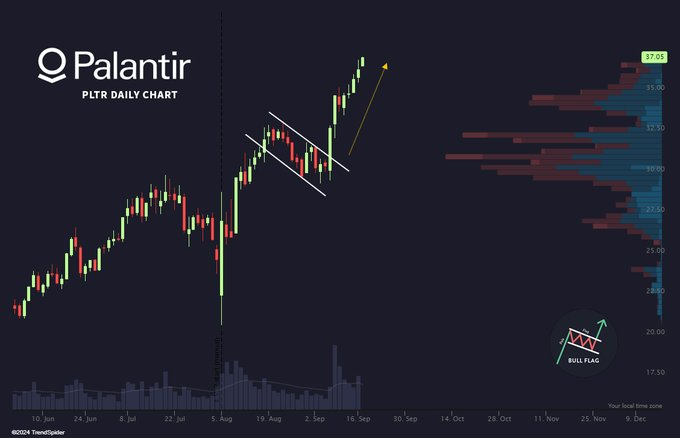France Urges EU To Escalate Response To US Tariffs

Table of Contents
France's Concerns Regarding US Tariffs
The French economy, particularly its agricultural sector and key industries like aerospace and wine production, has suffered significantly under the weight of US tariffs. These tariffs represent a major blow to French businesses and workers, creating a substantial trade imbalance and undermining years of carefully cultivated trade relationships.
-
Specific Sectors Affected: The agricultural sector, renowned for its high-quality products, has been particularly hard hit. French wine exports to the US have plummeted, impacting vineyards and related industries. Similarly, the aerospace sector faces challenges due to increased tariffs on aircraft components.
-
Quantifiable Economic Damage: While precise figures vary depending on the source and methodology, estimates suggest billions of euros in lost revenue for the French economy due to these tariffs. This loss directly translates to reduced economic growth and increased pressure on the national budget.
-
Impact on Jobs and Businesses: The imposed tariffs have led to job losses across various sectors. Smaller businesses, particularly those heavily reliant on exports to the US market, are facing significant financial strain, threatening their long-term viability.
-
Bullet Points Summarizing the Impact:
- Significant decline in exports of French wine to the US, estimated at [Insert percentage or monetary value if available].
- Reduced competitiveness of French agricultural products in the US market, leading to market share losses.
- Job losses in affected industries, estimated to be [Insert number or range if available].
Current EU Response and its Shortcomings
The EU's current response to US tariffs, while employing retaliatory measures, has been deemed insufficient by France and other member states. These retaliatory tariffs, though intended to counteract the US actions, have fallen short of mitigating the negative economic impact.
-
EU's Current Response: The EU has imposed retaliatory tariffs on a range of US goods, targeting sectors such as agricultural products and industrial goods. However, these measures have not effectively offset the damage caused by US tariffs.
-
Ineffectiveness of Current Measures: The current EU response has been criticized for its limited scope and lack of decisiveness. Many believe the retaliation has not been strong enough to encourage the US to reconsider its trade policies.
-
Weaknesses in the EU's Approach: The EU's response has been hampered by internal disagreements and a reluctance to engage in an all-out trade war with the US. This hesitancy has allowed the US to maintain its aggressive trade tactics.
-
Bullet Points Highlighting Shortcomings:
- Retaliatory tariffs imposed by the EU are limited in scope and impact.
- The impact of these retaliatory tariffs on the US economy has been relatively modest.
- The EU's approach has been criticized for lacking a unified and strong stance.
France's Proposed Escalation of Measures
France is advocating for a significant escalation of the EU's response to US tariffs, pushing for bolder actions to protect European economic interests. This includes a range of measures designed to put more pressure on the US administration.
-
Proposed Measures: France proposes an increase in tariffs on US goods, the initiation of new WTO complaints, and exploring alternative trade partnerships to reduce reliance on the US market.
-
Rationale for Escalation: The rationale behind these proposals is simple: the current response is ineffective. A stronger stance is needed to force the US to negotiate in good faith and remove the damaging tariffs.
-
Potential Consequences: While escalating measures carries the risk of further trade tensions and potential retaliation from the US, France believes the current situation necessitates a decisive response. The potential economic costs of inaction outweigh the risks of a stronger approach.
-
Bullet Points Detailing Proposed Actions:
- Proposal for a significant increase in tariffs on selected US goods, targeting key sectors.
- Initiation of new WTO complaints to challenge the legality of US tariffs.
- Active exploration of alternative trade agreements with countries outside the US.
Challenges to EU Unity on the Issue
Achieving a unified EU response to US tariffs presents a significant challenge. Member states have differing economic interests and sensitivities, which can lead to disagreements on the appropriate course of action.
-
Member State Disagreements: Some EU members, particularly those with strong economic ties to the US, may be hesitant to support aggressive retaliatory measures. These disagreements can hinder the EU's ability to present a united front.
-
Diverse Economic Interests: The economic interests of EU member states vary considerably, making it challenging to find a common ground on trade policy. Some countries might be more vulnerable to US retaliation than others.
-
Impact on EU Unity: Disagreements among member states risk weakening the EU's negotiating position and undermining its ability to effectively challenge US trade policies. A fragmented response will only embolden the US.
Conclusion
France's push for a stronger EU response to US tariffs reflects growing frustration with the current state of transatlantic trade relations. The economic impact on France and other EU members is substantial, highlighting the urgency of a more decisive approach. The proposed escalation of measures, while potentially fraught with challenges regarding EU unity, underscores the need for a robust and effective response to these US tariffs. The cost of inaction far outweighs the potential risks of decisive action.
Call to Action: The EU must act decisively to protect its economic interests in the face of US tariffs. The pressure from France, coupled with the significant economic stakes, necessitates a swift and comprehensive response to the ongoing trade dispute. Further inaction risks exacerbating the situation and causing even greater harm to the EU economy. Only a unified and forceful response can effectively address the issue and potentially lead to a fair and equitable resolution of the US tariff dispute.

Featured Posts
-
 Lynk Lee Sau Chuyen Gioi Ngoai Hinh Xinh Dep Ban Trai Luon Sat Canh
May 10, 2025
Lynk Lee Sau Chuyen Gioi Ngoai Hinh Xinh Dep Ban Trai Luon Sat Canh
May 10, 2025 -
 Understanding The Value Proposition Of Middle Management Benefits For Companies And Employees
May 10, 2025
Understanding The Value Proposition Of Middle Management Benefits For Companies And Employees
May 10, 2025 -
 Should You Buy Palantir Stock Before A Potential 40 Rise In 2025
May 10, 2025
Should You Buy Palantir Stock Before A Potential 40 Rise In 2025
May 10, 2025 -
 Kilmar Abrego Garcias Flight From El Salvador A Case Study In Us Immigration
May 10, 2025
Kilmar Abrego Garcias Flight From El Salvador A Case Study In Us Immigration
May 10, 2025 -
 Trump Weighs Action On Migrant Detention Appeals A Closer Look
May 10, 2025
Trump Weighs Action On Migrant Detention Appeals A Closer Look
May 10, 2025
